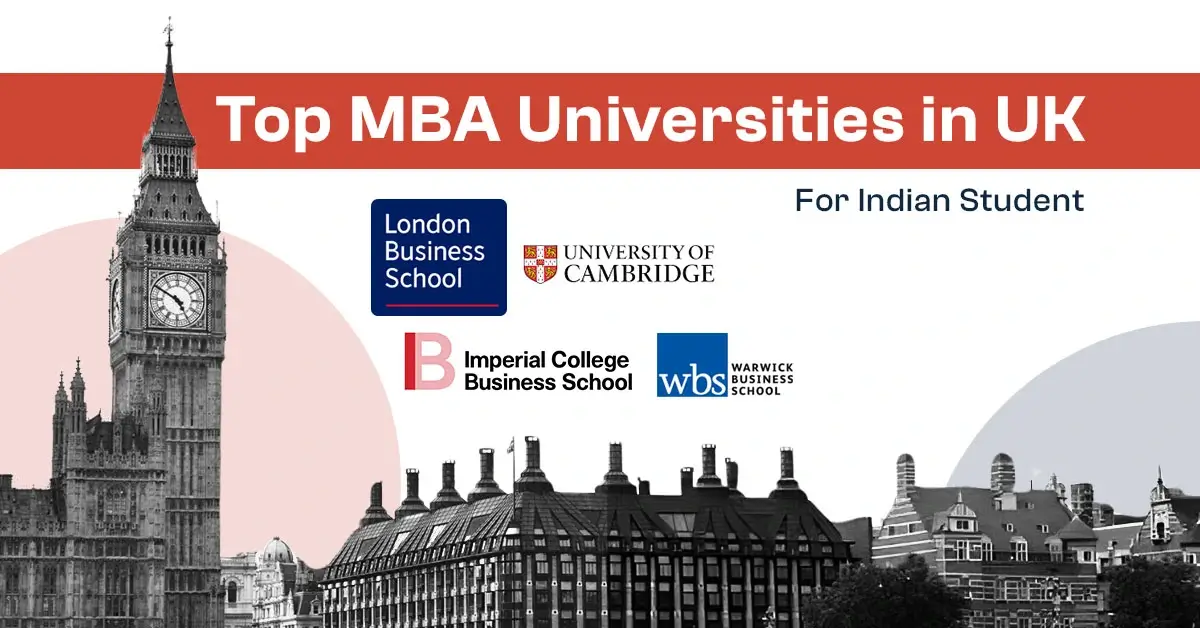Bachelor's Degree in UK: A Complete Guide
Make your dream of studying in UK come true – Experience rich culture, loan at top universities, and build your career today!
What are you looking for?
Hey, we’d like to know you better too!
Talk to our counsellor
UK is a top choice for education, consistently ranking among the best countries for studying abroad. Known for its excellent universities, diverse culture, and high living standards, UK offers a unique academic experience.
In 2023, over one million international students chose UK, thanks to its friendly immigration policies, affordable tuition, and focus on research.
Prepare to enjoy vibrant campus life, beautiful landscapes, and gain valuable experiences while earning your bachelor’s degree. This guide will help you from selecting the right program to settling into student life in UK.
Highlights
| Intakes | February, July | |
| Cost of Study |
|
|
| Required Exams | IELTS, PTE, TOEFL, GRE, and GMAT | |
| Degrees Offered | Diploma, Undergraduate, Postgraduate, and Doctorate | |
| Cost of Living | £12,600-18,600 per year | |
| Top Funding Sources | Scholarships, Part-time Jobs, and Student Loans | |
| Languages Spoken | English | |
| Best Student Cities | London. Edinburgh, Glasgow, Manchester, Nottingham |
Why Study bachelor's in UK?
There are plenty of reasons to study in UK, and some of the top ones include:
- World-Renowned Universities: The UK is home to several top-ranked universities known for their global reputation.
- Research Opportunities: Many universities in UK lead in research, providing chances to be involved in groundbreaking studies.
- Graduate Visa: The UK’s Graduate visa allows international students to stay and work for up to two years after graduation.
- Cultural diversity: The UK is a diverse and multicultural country, and you can interact with people from different cultures.
- Global recognition: A UK degree is highly regarded by employers and universities around the world.
- Industry connections: UK excels in almost every sector and has a history behind each of them.
- Shorter duration of courses: Courses in the UK are typically shorter than in other countries, allowing for quicker graduation.
Bachelor Degree UK Requirements
Academic Requirements
High School GPA: Most universities demand a minimum GPA of 3.0 or higher (out of 4.0) for consideration. However, prestigious programs often require higher scores.
English Language Proficiency
Proficiency in English is mandatory. Accepted tests include:
- IELTS: Generally varies between 6.0 to 7.0.
- TOEFL: Scores typically range from 80 to 100 for undergraduate programs.
- PTE: A minimum score of 60-65 is often required, but it varies by university and program.
Read more in detail: Is 6.5 a good score in IELTS Exam?
Document Checklist for UK
These are the general documents you will need to get started:
- Academic Transcripts
- Statement of Purpose
- Proof of loan sanction or scholarship
- CV
- Letter of Recommendation
- Names and contacts of the Referee
- Personal Statement
- Answers to Personal Essay Questions
- Names and contacts of the Referee
- Passport-size photographs
Undergraduate Courses in UK
UK offers a diverse range of undergraduate programs catering to various interests and career aspirations
Here are some of the most popular choices:
| Courses | Tuition Fees per year | Average Salary per year |
|---|---|---|
| Business and Management | £15,000 to £37,000 | £68,598 |
| Engineering | £11,880 and £23,760 | £41,968 |
| Health Sciences | £16,000 to £35,000 | £30,000-£40,000 |
| Humanities and Social Sciences | £15,000 to £30,000 | £34,525 |
| Computer Science | £12,500 to £44,000 | £65,626 |
| Mathematics and Statistics | £15,000 and £30,000 | £30,000 to £35,000 |
| Psychology | £15,000 and £30,000 | £43,742 |
| Hospitality Management | £15,000 to £20,000 | £49,895 |
| Information technology | £10,000 to £30,000 | £54,923 |
| Nursing | £15,000 to £35,000 | £34,126 |
Cost of Studying Bachelor in UK
UK offers a diverse range of tuition costs, influenced by the university, program, and residency status.
Tuition Fees
2: Degree: £11,400 to £32,081 per year.
Cost of Living in UK
The cost of living in UK varies significantly depending on the city you choose to live in. Major cities like London and Edinburgh tend to be more expensive than smaller cities or rural areas. However, the average cost of living is £12,600-18,600 per year.
Accommodation costs in UK
Most universities in UK offer on-campus residence facilities called the Halls of Residence to international students. However, you need to apply for it separately, and well ahead in time to secure a slot for yourself. The average cost is usually between:
- University Halls: £4,000 – £11,000 per year
- Private Rentals: £3,600 – £10,800 per year
- PBSAs: £5,000 – £13,000 per year
Read more in detail: How Much Money Is Required to Study in UK?
Scholarship for Bachelor Degree in UK
Various scholarships are available to students who want to study abroad in UK. Here are just a few of the most popular options:
Government Scholarships
- Chevening Scholarship
- Commonwealth Scholarships
- GREAT Scholarships
University Scholarships
- Oxford Centre for Islamic Studies (OCIS) Scholarships
- Clarendon Scholarship
- The Westminster Vice-Chancellor’s Scholarships
- University of Exeter Undergraduate Scholarships
- Cambridge University MBA Scholarship
- Global Leaders Scholarship
- Dean’s Award for Academic Excellence Scholarship
- Imperial College London PhD Scholarship
- Gates Cambridge Scholarship
If you have good marks or special talents, you may also qualify for merit-based scholarships.
If you want to know more about scholarships in UK, you can read this article: Scholarships for Indian Students in UK. Or, you can avail of our counselling from Transglobal Overseas to understand each scholarship’s eligibility, process, etc.
Top Universities and Colleges
Several great universities in UK are available to explore while in college. Below, we’ve listed some of the best universities in UK:
| Top Universities | Global QS Rank 2025 | |
|---|---|---|
| Imperial College London | 2 | |
| Oxford University | 3 | |
| University of Cambridge | 5 | |
| UCL | 9 | |
| University of Edinburgh | 27 | |
| University of Manchester | 34 | |
| King’s College London | 40 | |
| London School of Economics and Political Science | 50 | |
| University of Bristol | 54 | |
| University of Warwick | 69 |
Job Opportunities after Bachelor's in UK
Many job opportunities are available. Studying for an undergraduate degree in UK can benefit students
| Job | Average Salary |
|---|---|
| Accountants | £31,018 |
| Consultant | £85,000 |
| Software Developer | £30,000 |
| IT directors | £95,000 |
| Financial Managers | £57,041 |
| Data Scientist | £41,000 |
Step-by-step guide to applying for a bachelor's degree
Here’s a simple overview of the admission process for a bachelor’s degree in UK:
- Shortlist programs and institutions: Shortlisting a few university programs will clarify your prospects.
- Meet Eligibility Criteria: Prepare for exams, financial resources and documentation as per university requirements.
- Submit your application: Start your application, fill in your details, upload documents, and pay the application fees.
- Receive a Letter of Acceptance: If accepted, you’ll get an official Letter of Acceptance from UK’s university.
- Apply for Student Visa: Apply from the nearest embassy. After approval, you will receive the student visa on email.
- Prepare for Your Journey: Arrange accommodation, book flights, and get health insurance. Make sure you’re fully prepared for your move to UK.
Student Visa Requirements for UK
If you fulfill this requirement, then you can easily study in UK:
- A valid passport
- Travel documentation
- Confirmation of Acceptance of Studies or CAS
- Proof that you have financial resources to fund your living costs and tuition fees during your course.
- ATAS certificate if required
- Full Medical Checkup and Insurance
- Written consent from your sponsor for a scholarship award
- English Proficiency Test
- Passport-size color photographs
Post-Graduation Work Permit (PGWP)
- The Student is physically present in the UK.
- A holder of a Student visa or Tier 4 (General) student visa.
- Completed any of the eligible courses for at least 13 months in the UK.
- The student’s university has confirmed the completion of studies with the Home Office.
- Biometric residence permit.
- Confirmation of Acceptance of Studies reference number.
FAQs
How long is a bachelor's in the UK?
A Bachelor’s degree in the UK typically takes three years to complete. However, some programs, such as those in the arts or humanities, may take four years.
Can I study in the UK after 12th?
Yes, you can definitely study in the UK after 12th. The UK offers a variety of undergraduate courses for international students, including those who have completed their 12th standard.
for most programs.
What are the different types of bachelor’s degrees available in the UK?
The UK offers various bachelor’s degrees, including ordinary, honours, integrated master’s, sandwich, joint honours, and foundation year. Each degree has its own structure and focus, providing different educational paths.
Is there any Credit transfer policy for Indian students who will be pursuing Bachelors in the United Kingdom?
Yes, many universities in the UK offer credit transfer policies for Indian students pursuing Bachelor’s degrees. This means that if you have completed relevant courses or qualifications at an Indian university, you may be eligible to have your credits recognized and transferred to your UK degree program.
How many hours are students allowed to work in the UK?
International students in the UK are generally allowed to work a maximum of 20 hours per week during term time. This limit is designed to ensure that students prioritize their studies.
When should I start the application process?
It’s generally recommended to start the application process for a Bachelor in Nursing in the UK at least 12 months before the intended start date.






